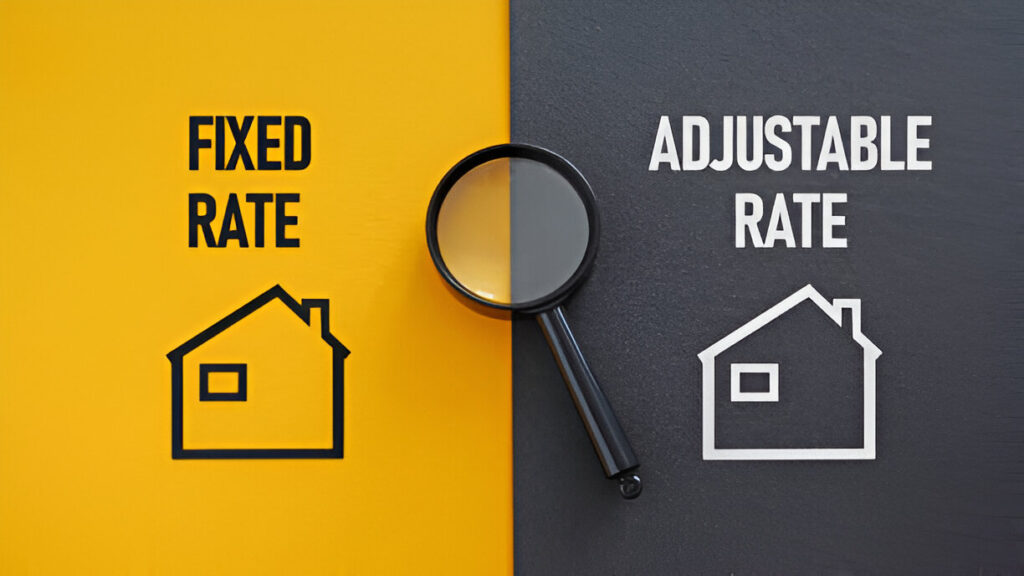Commercial real estate refinancing is a strategic financial decision that can significantly impact a business’s long-term success. Whether you own office buildings, retail spaces, or industrial properties, choosing between a fixed-rate and an adjustable-rate loan is crucial. Each option offers unique benefits and drawbacks, making it essential for borrowers to understand their implications before making a choice.
Fixed-rate and adjustable-rate commercial refinancing loans serve different financial goals and risk appetites. Fixed-rate loans provide stability, whereas adjustable-rate loans offer potential savings but come with variability. This article explores the pros and cons of both options, helping commercial real estate investors make informed refinancing decisions.
Fixed-Rate Commercial Refinancing
Pros of Fixed-Rate Loans
- Predictability and Stability – A fixed-rate commercial loan ensures that the interest rate remains constant throughout the loan term. This stability is beneficial for businesses that prioritize consistent monthly payments and long-term financial planning.
- Protection from Market Fluctuations – Since the interest rate is locked in, borrowers are shielded from potential rate hikes due to market conditions or Federal Reserve policies.
- Easier Budgeting – With a predictable repayment schedule, businesses can allocate resources efficiently without worrying about increasing monthly expenses.
- Long-Term Benefits – Fixed-rate loans are ideal for commercial properties expected to be held for an extended period, as they eliminate the uncertainty of interest rate fluctuations.
Cons of Fixed-Rate Loans
- Higher Initial Interest Rates – Compared to adjustable-rate loans, fixed-rate loans often start with higher interest rates, making them less attractive in environments where rates are expected to decline.
- Limited Flexibility – If interest rates drop significantly, borrowers are locked into higher rates unless they refinance again, which can involve additional fees and paperwork.
- Prepayment Penalties – Many fixed-rate commercial loans come with prepayment penalties, making it costly to pay off the loan early.
Adjustable-Rate Commercial Refinancing
Pros of Adjustable-Rate Loans
- Lower Initial Interest Rates – Adjustable-rate commercial loans often begin with lower rates compared to fixed-rate loans, which can translate to immediate cost savings.
- Potential for Decreased Rates – If market interest rates decrease over time, borrowers with adjustable-rate loans can benefit from lower payments without refinancing.
- Short-Term Cost Savings – Adjustable-rate loans are ideal for borrowers planning to sell or refinance before the interest rate adjusts, as they can take advantage of initial lower payments.
- Increased Borrowing Power – Lower initial rates may allow businesses to qualify for larger loans or allocate savings to other business needs.
Cons of Adjustable-Rate Loans
- Uncertainty and Risk – The biggest downside is the potential for interest rate increases, which can lead to higher monthly payments and financial strain.
- Complexity – Adjustable-rate loans often have complex structures, including adjustment periods, rate caps, and margin rates, which require careful understanding.
- Market Dependence – If interest rates rise significantly, borrowers may end up paying more over the loan’s life than they would have with a fixed-rate loan.
Choosing Between Fixed-Rate and Adjustable-Rate Loans
When deciding between fixed-rate and adjustable-rate refinancing options, consider the following factors:
- Business Goals – If long-term stability is a priority, a fixed-rate loan may be the better choice. If you plan to sell or refinance in the short term, an adjustable-rate loan might provide cost savings.
- Market Conditions – In a rising rate environment, locking in a fixed rate could be beneficial. Conversely, if rates are expected to decrease, an adjustable-rate loan may be more advantageous.
- Risk Tolerance – Businesses with a lower tolerance for financial risk may prefer the certainty of fixed-rate loans, while those willing to take on some level of risk might benefit from adjustable-rate options.
- Loan Term – Adjustable-rate loans often make more sense for shorter loan terms, whereas fixed-rate loans provide peace of mind for long-term investments.
Conclusion
Both fixed-rate and adjustable-rate commercial refinancing loans have their own advantages and challenges. While fixed-rate loans offer stability and predictability, adjustable-rate loans provide potential cost savings but come with increased risk. The right choice depends on your financial goals, risk tolerance, and market conditions.
For commercial real estate investors looking for reliable refinancing options, BridgeWell Capital LLC is a trusted partner. Whether you need a commercial real estate bridge loan Charleston, SC, or long-term financing, BridgeWell Capital LLC offers competitive rates and customized solutions to meet your business needs. Contact them today to explore the best refinancing options for your investment strategy.



